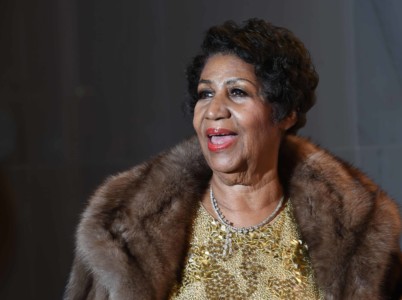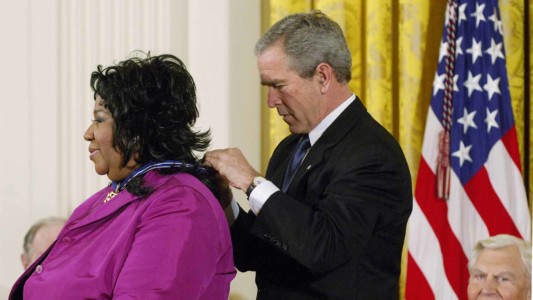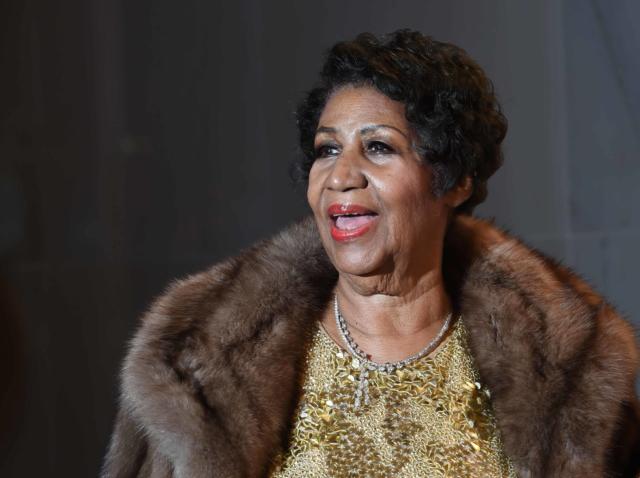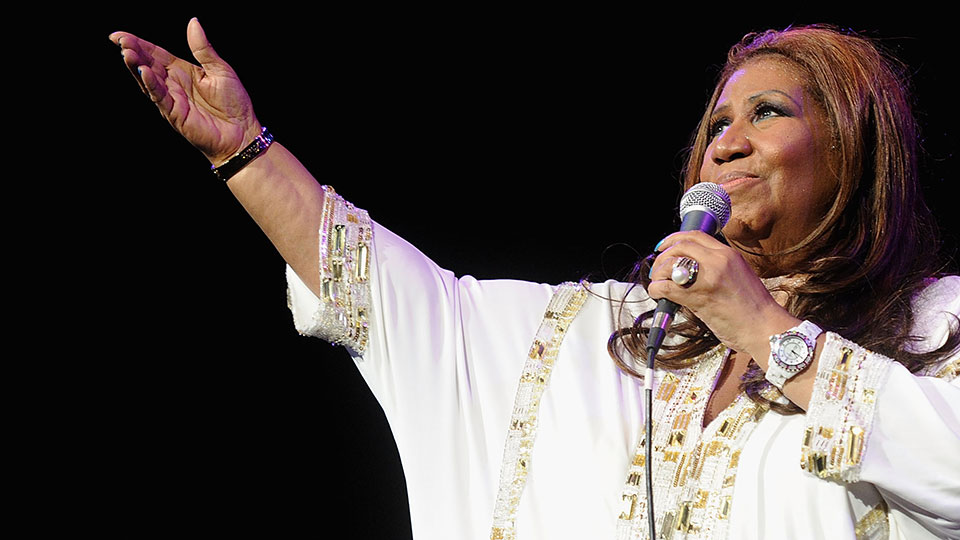Aretha Franklin, the mightiest voice in the history of pop, soul, rock, jazz – name the genre – passed away on Thursday at the age of 76. Born during the thick of World War II, Aretha feels like she’s always been with us. There was never an era in which she wasn’t relevant, never a genre in which she wasn’t popular, and when she exploded in the late-1960s, music itself changed forever.
Her upbringing is its own legend, born in Memphis to C.L. Franklin, a renowned traveling Baptist minister and civil rights activist and Barbara Franklin, a singer and pianist well-respected by the gospel community. Aretha was the third of four children they had together. The Franklins split in Aretha’s youth, sending Pastor Franklin and his four children to Detroit and her mother to Buffalo. Aretha would call the Motor City her home from then on, including where she chose to live out her last days.








Aretha’s youth was a confluence of music, of civic efforts and engagement, and not even time stood in the way of her singing career. At 11, she performed church solos and drew the attention of gospel singers at the time, including a young pre-pop Sam Cooke. Her grandmother, the legendary soul singer Mahalia Jackson, saw Aretha’s young power and took turns raising and training her for performance.
She soon embarked on her first tour, managed by her father. Singing gospel in churches across America, Aretha saw vast inequity as well as commitment to causes of equality and opportunity. She sang harder. In 1956, the year Elvis exploded, the year the Supreme Court ruled bus segregation unconstitutional, she released her first record. She was 14.
In 1961 Columbia Records, having heard a two-song demo of secular music produced by her father, signed her to her first major label deal. Columbia saw her as a pop, vocal jazz musician and she recorded as such. In the early 1960s, the landscape of pop music was young but still delineated by prejudices of the time, tenfold when it came to female voices. White women in the early 1960s recorded pop, and black women recorded jazz or R&B.
Columbia saw her chiefly as a jazz singer and treated her as such; their records are lovely, peaceful affairs. Her gospel upbringing was nowhere to be heard. It’s this treatment that, while selling records, underserved the performer Columbia had. By 1966, the musical landscape had altered immeasurably in favor of bands and genres that have become meaningless but Aretha was still singing jazz. She and Columbia parted ways.
The next move would make her a superstar.
Atlantic Records was Jerry Wexler territory. He ran the best R&B label in the business and he knew, in Aretha, he had one of the best, most-gripping voices in the brief history of pop. As you can see in the great 2013 documentary “Muscle Shoals”, Wexler sent Aretha down to rural Alabama to record with the best rhythm session musicians he knew. They, a handful of white rock ’n’ rollers, were raised on the bible and church music same as Aretha. The sessions took her voice from the limits of vocal jazz imposed by Columbia and recorded hard-edged, gospelly, rock-’n’-roll-laden rhythm and blues numbers, a confluence and mash of pop and rock, white and black.
The first single for Atlantic was the title-track from their first album together, “I Never Loved A Man (The Way I Love You,)” which opened with Aretha Franklin, eleven years into a singing career spanning gospel, jazz and pop saying this:
You’re no good, heartbreaker
You’re a liar and you’re a cheat
And I don’t know why
I let you do these things to me
The tiger was loose. 1967, the year of The Beatles’ Sgt. Pepper’s Lonely Hearts Club Band, the Summer of Love, Aretha Franklin reinvented the pop, rock, and R&B vocal.
Her second single was a cover of a minor Otis Redding single, “Respect.”
As legend has it, when Otis first heard her version, the one that would soon overtake the record sales, radio airplay, and become the anthem for black Americans and women as their anthem, he muttered with a smile, “The little girl cut me.”
The legend of Aretha Franklin, which began in churches and the pianos in living rooms across the South and Midwest, took over music itself. Her success broke decades of boardroom segregation of what the stage and record shelves were supposed to look like. Her singing itself, there was nothing light and airy about it.
Listen to pop vocalists of the 1950s. She took the hollering of gospel, the training of projecting a voice over a crowd without help of a microphone, and set it against southern blues and rock rhythms. In her wake, every voice changed. None equalled. Aretha treated pop music as gospel itself, raising the profile of the art, the form, the people and the singer together, in perfect harmony.
Aretha’s life is littered with acolades, including 18 Grammy Awards, induction into the rock ‘n’ roll, gospel, and UK Music Halls of Fame. She sang at both the funeral of Dr. Martin Luther King Jr. and the inauguration of President Barack Obama.
She’s one of the bestselling acts in the history of pop music. She mentored several generations of performers and activists, including Whitney Houston and Mary J. Blige. She passed peacefully of pancreatic cancer, surrounded by friends and family outside Detroit.
 CGTN America
CGTN America
 (FILES) In this file photo taken on December 6, 2015 Aretha Franklin poses on the red carpet before the 38th Annual Kennedy Center Honors in Washington, DC.
Aretha Franklin died at the age of 76 on August 16, 2018 at her home in Detroit according to her publicist. (AFP PHOTO / MOLLY RILEY)
(FILES) In this file photo taken on December 6, 2015 Aretha Franklin poses on the red carpet before the 38th Annual Kennedy Center Honors in Washington, DC.
Aretha Franklin died at the age of 76 on August 16, 2018 at her home in Detroit according to her publicist. (AFP PHOTO / MOLLY RILEY)


